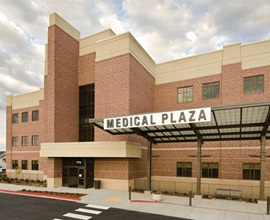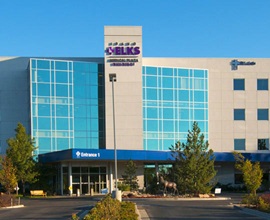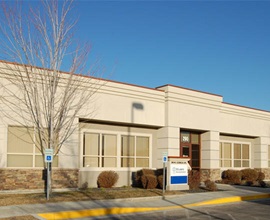
Our goal is to help you regain what you’ve lost after a stroke. At St. Luke’s Rehabilitation, you’ll receive care from a variety of clinicians who have expertise in movement, speech, and cognition recovery. Your care in the hospital will often reflect a normal day. You’ll exercise, engage in conversation and memory activities, and may even cook meals in our therapy kitchen.
You and your loved ones will be supported and engaged in your treatment plan. And when it’s time to return home, we’ll work with you and everyone involved in your care, to ensure you feel comfortable and confident leaving the hospital.
You and your loved ones will be supported and engaged in your treatment plan. And when it’s time to return home, we’ll work with you and everyone involved in your care, to ensure you feel comfortable and confident leaving the hospital.
Highlights & Resources
-

Blog Post
St. Luke's team effort, wife's 911 call help save 'totally amazing' climber after stroke
Read More -

Blog Post
Support Group Helps Patients, Family, Friends in Aftermath of Stroke
Read More -

Blog Post
Boise Woman Grateful for Fast Care Following Stroke
Read More -

Blog Post
Stroke Survivor Takes Life One Step at a Time, Tackles Race to Robie Creek
Read More
Your Stroke Rehabilitation Program Team
Your care team will be overseen by a physiatrist, a physician who specializes in rehabilitation medicine. Other providers on the team may include a:- Physical therapist
- Occupational therapist
- Speech pathologist
- Social worker
- Dietitian
- Nursing case manager
- Other healthcare professionals, depending on your needs
Contact Us
If you need additional information, please call:- Treasure Valley: (208) 385-3232
- Magic Valley: (208) 814-3755
What is CARF accreditation, and why does it matter?
Our comprehensive inpatient programs at St. Luke's Rehabiliation Hospital in the Treasure Valley and Gwen Neilsen Neilsen Center Rehabilitation Center in the Magic Valley are accredited by the Commission on Accreditation of Rehabilitation Facilities (CARF). This means they are striving to meet the highest standards of care nationally. In order to maintain our CARF accreditation, we must regularly share our patient outcomes as they compare to national benchmarks.
-
Facilities & Locations
-
In All Locations
-

Gwen Neilsen Anderson Rehabilitation Center: Twin Falls
775 Pole Line Rd. W.Suite 307Twin Falls, ID 83301(208) 814-3755 -

St. Luke's Rehabilitation Hospital: Boise
600 N. Robbins Rd.Boise, ID 83702(208) 489-4444 -

St. Luke's Rehabilitation: Nampa, Georgia Ave.
290 W. Georgia Ave.Nampa, ID 83686(208) 385-3700 -

St. Luke's Rehabilitation: Twin Falls, 775 Pole Line Rd. W.
775 Pole Line Rd. W.Suite 202Twin Falls, ID 83301(208) 814-2570
